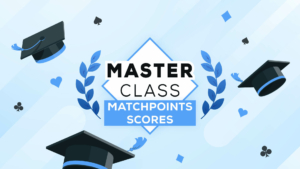
The Hidden Secrets Behind the Creation of Argine

To learn more about the creation of Funbridge’s artificial intelligence, what could be better than to directly interview the creator of Argine, Alexis Maugat.
Who is Alexis Maugat ?
Firstly, could you please tell us a little bit more about your role at Funbridge?
Alexis : When I joined Funbridge about 10 years ago, I did not come on my own, but with my little daughter Argine. She is a bridge AI I had been working on for a few years, and ever since I focus on improving her level.
Funbridge was looking for a new AI for it’s bridge application, so that’s the way it all began.
You need a Funbridge Premium+ subscription to keep reading.
To read the rest of the article, you must be subscribed to the Premium+ offer.





Interesting subject. I would like to hear more about the “learning” process. Is Argine learning from it’s results? Is the learning process ongoing, or is it initiated by the developers at selected times? and if so, how often? How fast can we expect Argine to improve (let’s say from a grade7/10 to 8 to 9)? How much of the learning is “hard coded” ie correcting specific situations, VS. overall improvements which bring overall progress?
Hello Aviram1! To answer your first question, Argine does not learn from its mistakes by itself! There is no automatic learning process. Mistakes made by Argine are usually reported by the players and then corrected directly by yours truly. Each time a correction is made, numerous regression tests must be carried out to check that the change has not upset something that was working well before.
Kind regards,
Alexis Maugat – AI engineer Funbridge
Good article … Alexis has done brilliant work. I wish to thank him for this.
I would like to get a lot more detail about how Argine is implemented and tested. Funbridge is an excellent platform and Argine is much better than the BBO robot. Nevertheless Argine must keep on improving and there should be some way for interested users to help creating a better Argine
Can you programme the Gerber convention please.
Thank you Alexis for all your hard work creating Argine
Great job so far Alexis! Two comments:
1) In many cases Argine does not defend the same way for exactly the same situation (same bidding and same meaning of bids) – this is OK, because humans are not always playing the same way either. Still, it would be fairer if Argine did defend the same in exactly the same situation.
2) On the other hand, Argine never false cards when winning a trick or covering an honor. This is part of normal bridge.
Perhaps some variation could be introduced here?
Very interesting topic.
How is the learning and improvement process of Argine?
Thanks
Can you programme the Gerber convention please.
Thank you Alexis for all your hard work creating Argine
LCTB = losing country trick bidding by Ron Klinger . Would it be possible to implementere as a possible bidding system.?And would it be possible to explain better, how an WHy Argine plays against .?